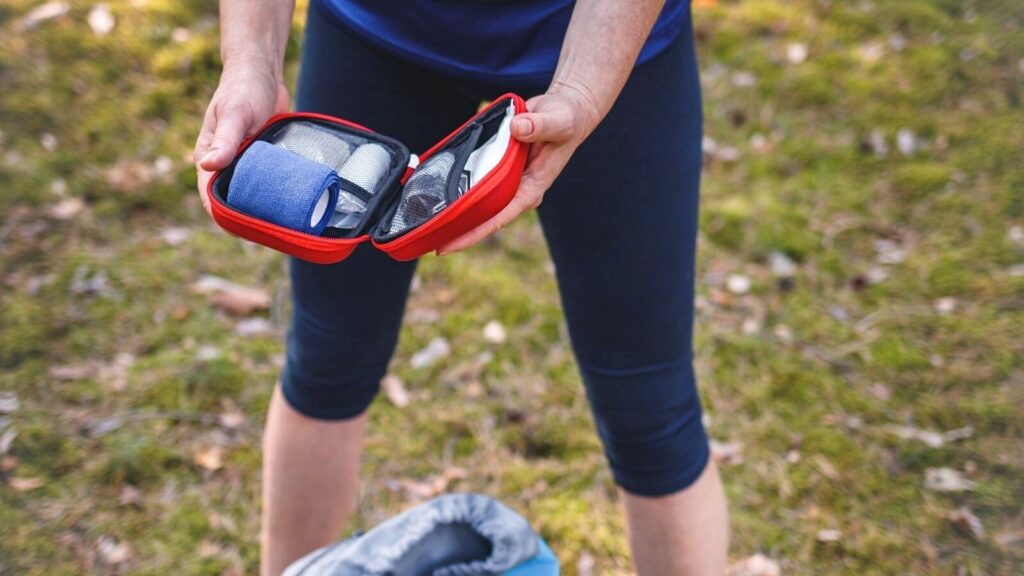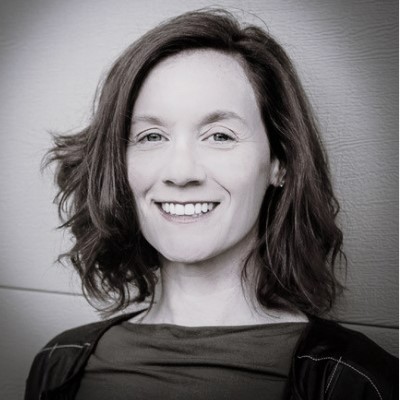Elizabeth Goodson imparts the value of emergency preparedness in medicine and beyond.

When Elizabeth Goodson arrived at the National University of Natural Medicine (NUNM) campus for her first in-person class, it was for a two-day intensive elective course focused on emergency preparedness and wilderness survival skills.
At the time, Goodson was enrolled in NUNM’s first-year online option for the Doctor of Naturopathic Medicine (ND) program. After studying virtually, she said she was hesitant to visit campus in the middle of the academic year.

On her first day of the Wilderness First Aid (WFA) course, she discovered that most participants were on-campus students from her cohort. Now, she was meeting them for the first time in an unforgettable setting.
“The two-day class is just epic,” said Goodson, now in her second year of the ND program. “It was a great way to get introduced to the campus, although I was only three and a half miles away, and it forced me out of my comfort zone.”
After more than two decades in the biotech industry, Goodson was completing a doctorate in clinical nutrition at the University of Western States when she enrolled at NUNM.
Her mother, a lifelong nurse and educator, inspired Goodson’s desire to work in healthcare and pursue ongoing educational opportunities.
Goodson said the WFA course sparked her interest and aligned with her mindset of being prepared for everyday challenges—something she developed through the Girl Scouts of the USA and her training in the Civil Air Patrol and military.
“We’re here in Portland and surrounded by civilization,” she said, “but there’s also wilderness around us.”
Goodson said the course gave her a deeper understanding of how to assess various medical situations, as well as implement survival skills in environmental emergencies. It also covered aspects of tropical medicine and taught students the practical skills for responding to emergencies while traveling abroad.
“I travel a lot,” she said, “and have certainly seen some situations where it would be helpful to understand what else to do.”
Goodson discussed her experiences in the Wilderness First Aid (WFA) course at NUNM and how it can foster preparedness for medical emergencies, as well as everyday challenges.
NUNM: Why did you choose to take the WFA elective course?
Goodson: Preparation is key to not getting caught in a situation where you have no idea what to do. I’d just come out of living in the mountains for two years before this and there wasn’t a lot of access if something went down. Thankfully, nothing did, but that could have been a very different situation. In all fairness, the course is also only two days and two of your elective credits. While it’s short and intense, it’s not like a lot of other classes that require this immersion, where you stay so engaged and you then must regenerate your energy over the term. You might be tired when you go home at the end of the day but you’re not still reeling from everything. You learn, have fun, and then it’s the end.
What were you expecting when you signed up for the class?
I’m an introvert, so I can get nervous in these situations, but the instructor was just the nicest, most personable human who was so easy to speak and work with. The class exceeded my expectations. I love any learning with an element of demonstration. Switching roles from a practitioner or responder to a patient made it easier to understand what it’s like on both sides. During simulations, part of the group had to pretend they were hurt and wander around hysterically, which might seem unlikely, but in real life, you may encounter something like that. Being able to act as a responder and a patient was not what I expected but I am grateful for the experience! After each simulation, we conducted a debrief session, adding a layer of professionalism as hospitals and other response organizations do this as part of their training. We were also graced with some amazing stories from our instructor, Gerry Brache, about how bad an emergent situation can get, and this helped us understand what we could do in the moment.
What value can WFA provide for students at NUNM, and beyond?
I think it’s a phenomenal elective and would love to see more electives in this arena. Whenever we present opportunities to the school, they’ve been very responsive, and to me this is just a standing example of the school’s openness to include opportunities and support students if there’s a course they want to bring in. Even if someone is in allopathic medicine or they just plan to look at labs all day and not interact much with patients, we can never avoid all incidents. There could also be a situation where you’re somewhere and someone is having a heart attack, or somebody has fallen and is unresponsive. There may not be a doctor around, so what do you do? Even basic first responder training and information are important for everybody to have, and this WFA experience reaffirmed my belief in that.
Editor’s Note: The 2025 Wilderness First Aid course is set to take place from May 17-18 at NUNM. This course is offered in partnership with SOLO Schools, a provider of medical education and training across the country. (An optional CPR component is also available for an additional fee.)
Written by Ashley Villarreal, Marketing Content Specialist